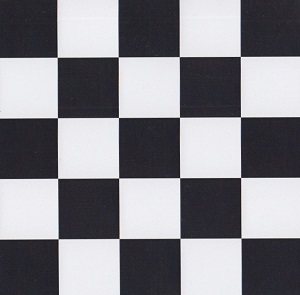
Edward Winter

The following advice appeared on page 3 of the New York Saturday Press, 18 December 1858:
‘Always crowd into your columns as many slang phrases and sporting terms as possible. The relations between chess and the turf are so intimate, and chessplayers are men of such low character, that your readers cannot fail to appreciate these refinements of style.
If any player or Club has in any way offended you, abuse the unhappy man or Club roundly and continually. Spare neither insulting epithets nor malicious insinuations; never allow the good of the cause to interfere with the gratification of your personal feelings of enmity. You are required to maintain the independent tone of your column at all hazards.
If a paper that you dislike publishes an original game or problem which is afterwards copied into another journal, hasten to publish it, and if you give any credit for it at all, be sure to attribute it to the copying periodical, and not to the one to which you owe a grudge.
If anybody attempts to introduce a great chess reform, based upon experience or study, treat it with sneers and jeers. It is not your business of course to expend money in procuring articles and books upon the subject, and you will find that bad jests and ungrammatical ridicule are cheap substitutes for sound thought and cool argument.
Fail not to impress upon your readers the fact that you are a martyr to the cause of Caissa. If you are roundly paid for managing your chess columns, if you sell chess books and chessboards at a large profit, if you receive money for giving valuable lessons upon the game to green tyros – never mind these things, but prate unceasingly about the services you have rendered to chess. At the same time, never affix your name to any subscriptions list destined to advance the interests of the royal sport.
Labor to be unremittingly facetious. Stale witticisms, wornout puns, and funny expletives are absolutely necessary in writing about chess. As the exponents of an art so philosophical and thoughtful as chess, you are of course supposed to be always grinning.
Having once attained to the position of a chess editor, you must be careful to support the dignity with propriety. What if you do not know ten lines of chess history? What if you are utterly ignorant of its entire annals from the age of its Sanscrit origination down to the days of its American burglars? What if you are a fourth rate player, and cannot see through a combination of two moves? What if you are not able to put together a single sentence of clear English? All this does not matter so long as you unblushingly ignore all your deficiencies, and, with brazen front, talk loudly of your chess knowledge and general accomplishments.’
We quoted this article on pages 40-41 of issue 29 of Kingpin (Autumn 1998) and also gave it on pages 368-369 of A Chess Omnibus.
See too our own article, How To Write about Chess.
To the Chess Notes main page.
To the Archives for other feature articles.
Copyright: Edward Winter. All rights reserved.